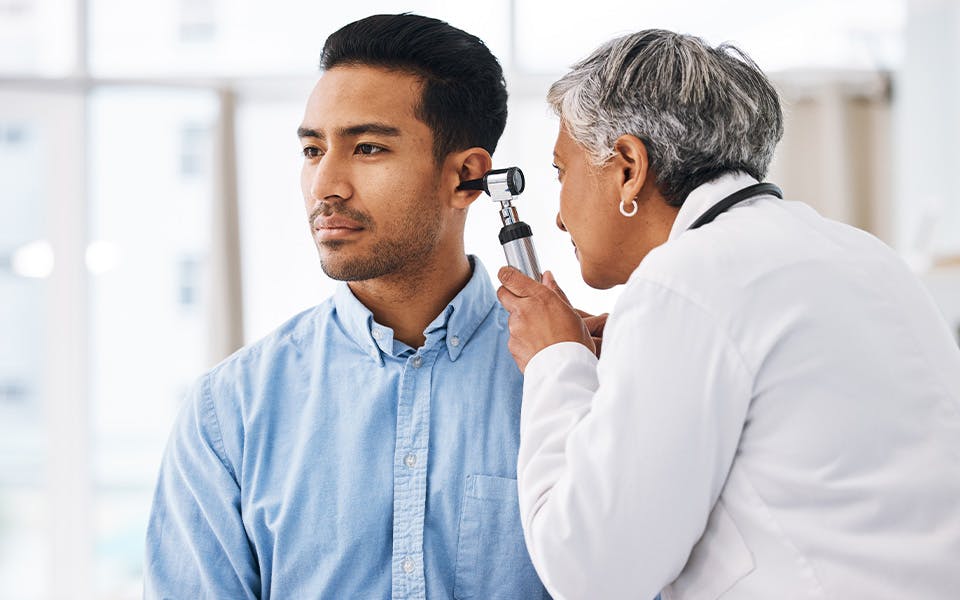Preparing to visit your audiologist can put you at ease. Your first appointment should be a pleasant and educational experience. Here are some tips to help you get ready.
How to Prepare
Here are some items and information to bring to your appointment:
- Your insurance card(s)
- A current list of your medication
- Details of medical conditions
Call the audiologist’s office to determine if your insurance will cover the cost of the appointment and tests. Ask a friend or family member to accompany you to provide another perspective, ask questions and record information.
Intake Forms and Medical History
You’ll fill out paperwork if you’re visiting an audiologist for the first time. That includes answering personal questions about your age, gender, and general health. Your audiologist will ask if you have a history of medical conditions, illnesses or surgeries and if you have a family history of hearing loss.
Be honest and thorough when talking with your audiologist to provide them with a clear picture of your physical health. That will help them find the source of potential hearing issues. You’ll also discuss your lifestyle habits that could contribute to hearing loss.
Evaluating Hearing Concerns
After you cover your basic information and medical history, you’ll describe your symptoms and concerns about your hearing health. Your audiologist may ask for a timeline of your symptoms and attempt to identify any external factors, such as exposure to loud noise or what situations you struggle to hear in.
You should also talk about your hearing health goals. What do you hope to achieve in a few months or a year? How can you work with your audiologist to reach those goals and prevent further hearing loss?
Taking a Hearing Test
Hearing evaluations are painless and take 20 to 30 minutes. There are three types of hearing tests: otoscopy, tympanometry and audiometry.
Otoscopy
An otoscopy is a visual ear exam that is completed at the beginning of your appointment. Your audiologist will use an otoscope to look in your ear canal for cerumen (ear wax), foreign objects or blockages, fluid buildup and other obstructions that could cause hearing loss. They will also check your eardrum for perforations and ruptures.
Tympanometry
Your audiologist will gently apply air pressure in your ear to gauge how your eardrum responds to stimulation. Tympanometry tests your middle ear function, allowing your audiologist to determine if the ear drum is moving as it should.
Audiometry
This hearing test is completed in a soundproof booth. You will wear a set of headphones and listen to tones at different pitches and volumes and indicate when you hear sounds. The second audiometry test requires you to listen to speech through your headphones and repeat the words to your audiologist as you hear them. This helps determine what type of hearing loss, if any, is present.
Reviewing Hearing Test Results
You’ll receive an audiogram with your results showing the quietest sounds you hear. Your doctor will review the information and provide options for treatment.
If your results indicate hearing loss, your audiologist may recommend hearing aids or new communication strategies. They might suggest hearing protection and provide tips on preventing further hearing loss.
Follow-Up Audiology Appointments
Your audiologist will take your measurements and discuss hearing aid styles. They will order your devices and schedule an appointment to fit and adjust them to your ears.
You may also wish to meet with your audiologist again if you have tinnitus. They can provide information on aural rehabilitation and explain methods to help you cope with the ringing in your ears.
Schedule a Hearing Test at Hearing Associates
Visit Hearing Associates if you’re looking for audiology services in northern Iowa and southern Minnesota. Our expert staff will work with you to understand your needs and create a personalized hearing treatment plan. Call 888-760-2032 or schedule an appointment online.


